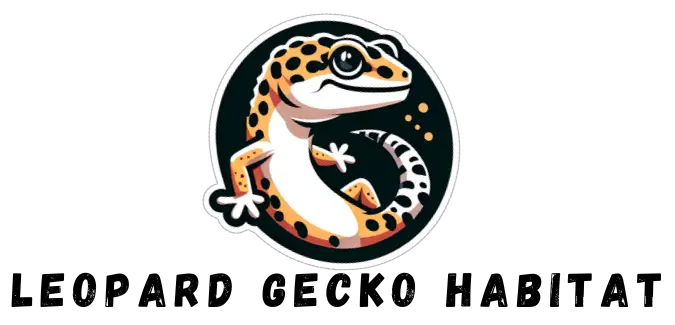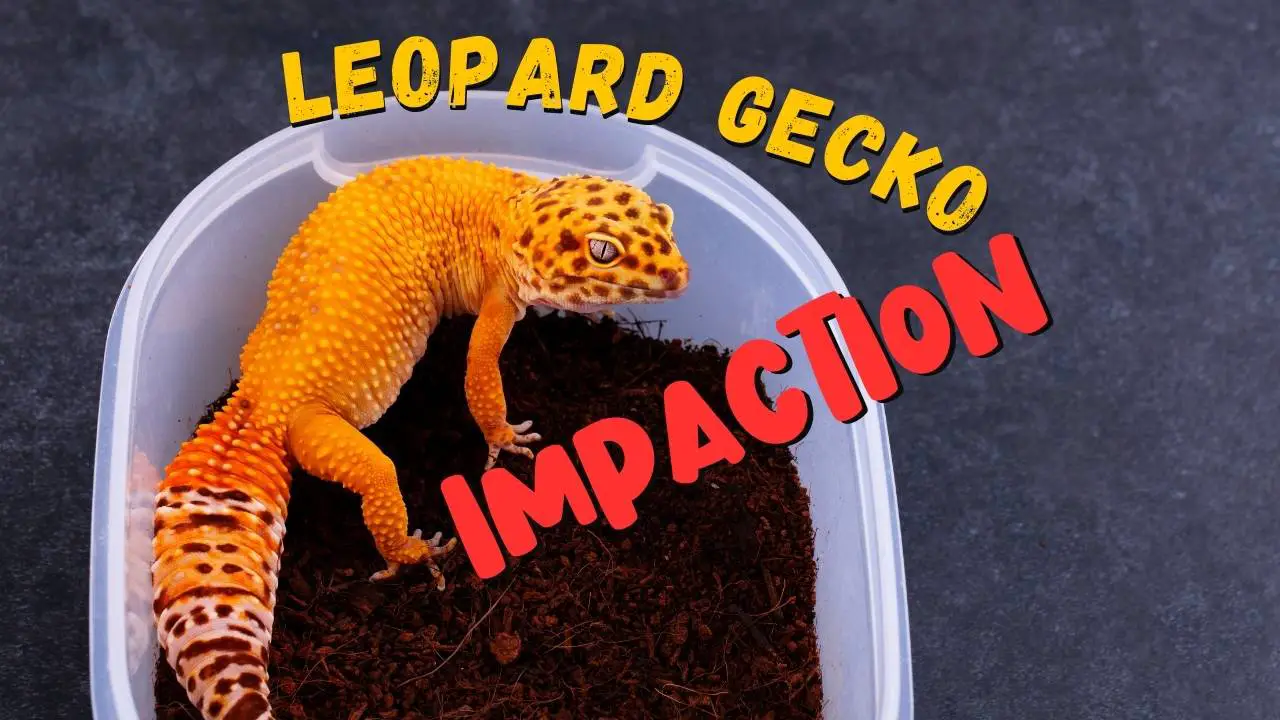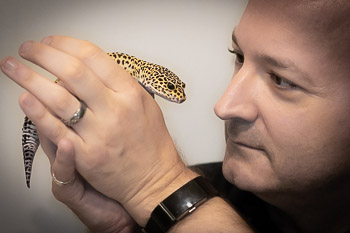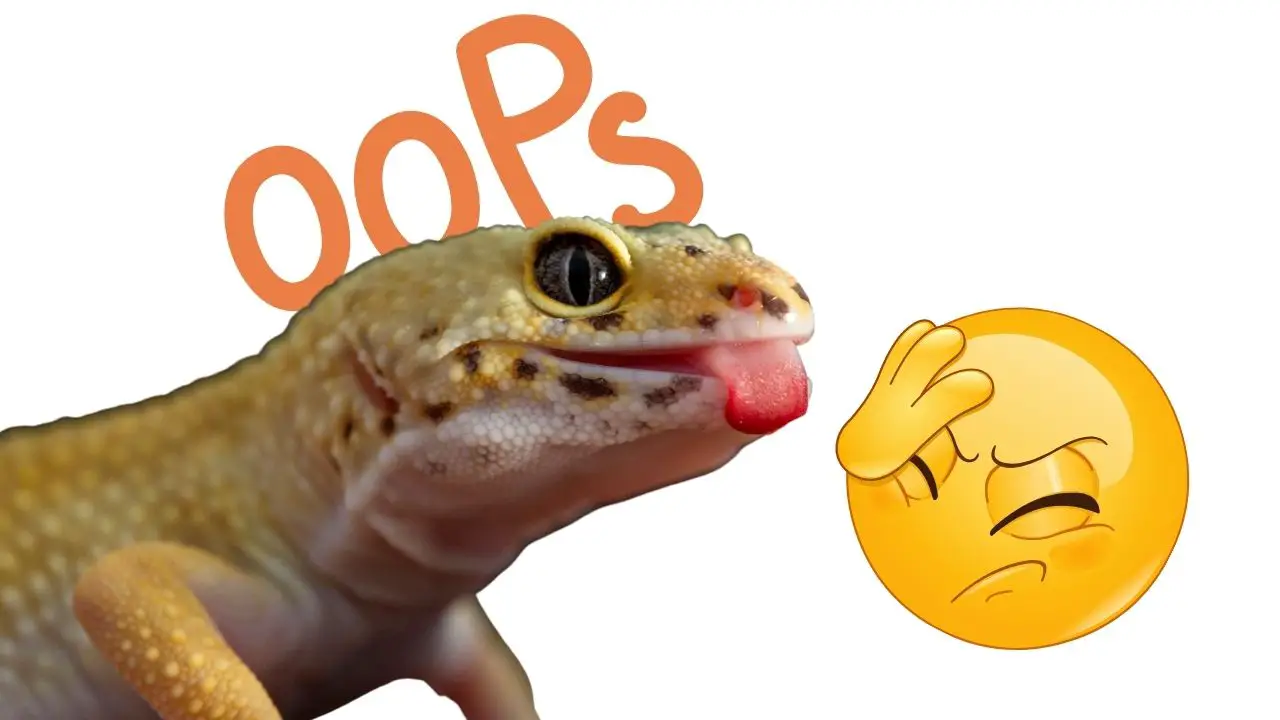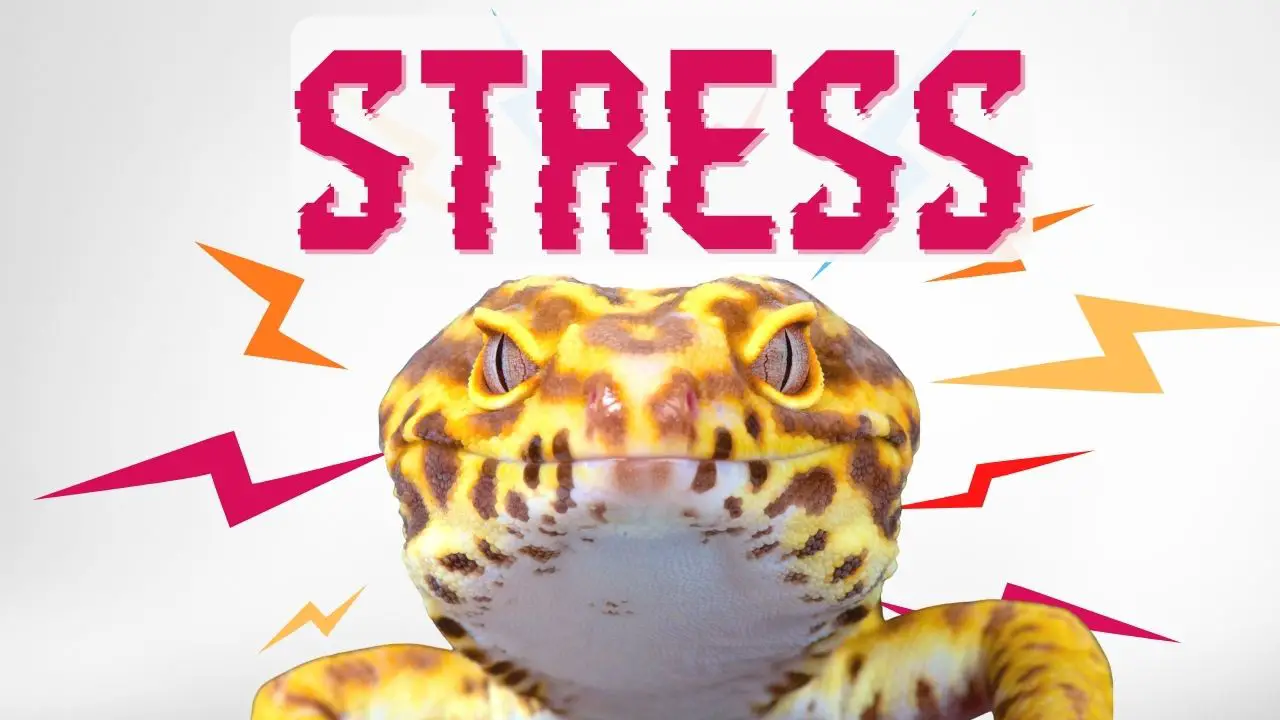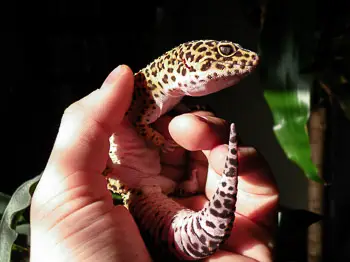Did you know that impaction is one of the most common health issues that leopard geckos face? Impaction is a condition that occurs when undigested food or other indigestible materials obstruct their digestive tract and prevent normal bowel movements.
If left untreated, impaction can lead to serious health complications and, in some cases, death. As a responsible leopard gecko owner, it is crucial to understand the causes, symptoms, prevention, and management of impaction, as well as seeking prompt veterinary attention if necessary.
Key Takeaways
- Impaction in leopard geckos can be caused by diet and environment, and its symptoms include lethargy, decreased appetite, and irregular stool passing.
- Impaction can be prevented by keeping a clean and safe environment, avoiding loose substrate, feeding appropriate-sized insects, providing proper calcium supplementation, gut-loading feeder insects, and providing proper heating
- Treatment for impaction requires veterinary care, but some home remedies include belly massages, warm baths, and mineral oil.
- Factors contributing to impaction include substrate ingestion, poor oral health, inadequate temperature and humidity levels, and loose substrates like sand or gravel.
Understanding Impaction in Leopard Geckos
Impaction in leopard geckos occurs when their digestive system becomes blocked. This is often caused by ingesting substrate or other foreign objects such as rocks or large insects.
As a pet owner, it’s important to understand the dietary requirements of your leopard gecko and provide proper care to prevent impaction. Prevention methods include providing a clean and safe environment for your gecko, avoiding the use of loose substrate, and feeding them appropriate-sized insects.
Additionally, it’s important to ensure your gecko is receiving proper calcium supplementation (NOT calcium sand), as this can impact their digestive system. By following these guidelines, you can help prevent impaction in your leopard gecko and ensure they live a happy and healthy life.
Causes of Impaction in Leopard Geckos
Here are some of the common causes of impaction in leopard geckos and practical solutions to prevent it:
Substrate type
The type of substrate used in their habitat can be a significant cause of impaction in leopard geckos. Substrates like calcium sand or other loose substrate can be harmful if ingested by the gecko. To prevent impaction from this source, use safe substrates such as paper towels, reptile carpet, or tiles.
Lack of hydration
Poor hydration can lead to impaction and other health complications in leopard geckos. Provide fresh water in a shallow dish at all times and ensure that the gecko has easy access to the water.
Inadequate heat
Leopard geckos require specific heat conditions to maintain their body temperature and digestive system functions. Environmental temperatures must be maintained within proper ranges, and need some belly heat from the bottom of the tank for proper digestion.
Stress levels
Just like other pets, leopard geckos can be susceptible to stress, which can lead to impaction. Reduce stress levels by providing an appropriate habitat and limiting handling.
Age and size
Young leopard geckos are more prone to impaction, which can increase their chances if they are not carefully monitored. They’re simply smaller and need proportionally smaller feeder insects. Adults can become impacted just as easily if they ingest something that will block their digestive system.
Feeding a healthy diet
A healthy diet is critical to maintaining the digestive health of leopard geckos and preventing impaction. Feed them a balanced diet of gut-loaded insects like crickets, waxworms, and mealworms, and supplements of calcium and vitamins.
You may have unknowingly contributed to your pet’s digestive issues by feeding them a diet primarily consisting of mealworms, which lack fiber and can cause constipation. Other causes of impaction in leopard geckos include
Poor oral health, such as not providing enough calcium or vitamin D3, can lead to weak jaw muscles and difficulty in swallowing, increasing the risk of impaction. Additionally, environmental factors such as inadequate temperature and humidity levels can also contribute to digestive problems in leopard geckos.
Symptoms of Impaction in Leopard Geckos
If your pet seems lethargic, has a decreased appetite, and is not passing stool regularly, it may be time to assess their digestive health. These symptoms are common indicators of impaction in leopard geckos.
Loss of Appetite
Lack of appetite can be a sign of a number of health issues, including impaction. If your gecko can’t pass food through a clogged digestive system, the desire to add more food items just isn’t there.
Weight Loss or Lack of Growth
If your gecko has a poor appetite and isn’t eating, it’ll start dropping weight. For smaller and younger geckos, it can stunt their growth.
Lethargy, Decreased Activity Level, or Difficulty Moving Around
If your pet isn’t getting enough calories or nutrition, it simply won’t have the energy to move. It’s going to be slow and
Bloated Abdomen
Even if they have appetite loss, a bloated belly is a sign of impaction. Also, look for a dark spot forming on the underside of the abdomen.
Constipation
If their digestive system is clogged, your gecko is going to have trouble pooping. If they’re still eating and you’re not finding poop in their tank, this could be an early sign of impaction.
Related Post: How Often Should a Leopard Gecko Poop?
Vomiting/Regurgitation
If the digestive system is blocked and your pet can’t poop, waste may start coming out the only other way it can: back up through the mouth. If you notice your gecko vomiting (or trying to vomit) check for other signs of impaction.
Risk Factors of Impaction in Leopard Geckos
When it comes to the risk factors of impaction in leopard geckos, there are several key points to consider. First and foremost, substrate choice can increase the likelihood of impaction. Certain types of substrate should be avoided.
Additionally, feeding habits, hydration, inadequate heat, and stress levels can all contribute to the development of impaction. As a responsible leopard gecko owner, it’s important to be aware of these risk factors and take steps to minimize them.
This will help keep our leopard geckos healthy and happy.
Substrate Choice
Ingesting loose substrate is one of the most common reasons for impaction. When it comes to substrate options, make sure to choose something that won’t cause harm to your pet’s digestive health. Avoid using loose substrates like sand or gravel, as they can be ingested and accumulate in the digestive system and be difficult to pass. Instead, consider using reptile carpet, paper towels, or even tile as a safer option.
While it’s true that without proper calcium levels, geckos can develop metabolic bone disease, making it difficult for them to move properly. They’re much better off getting their calcium from a supplement rather than sand.
Read more about the best option is our article on leopard gecko substrate.
Feeding Habits
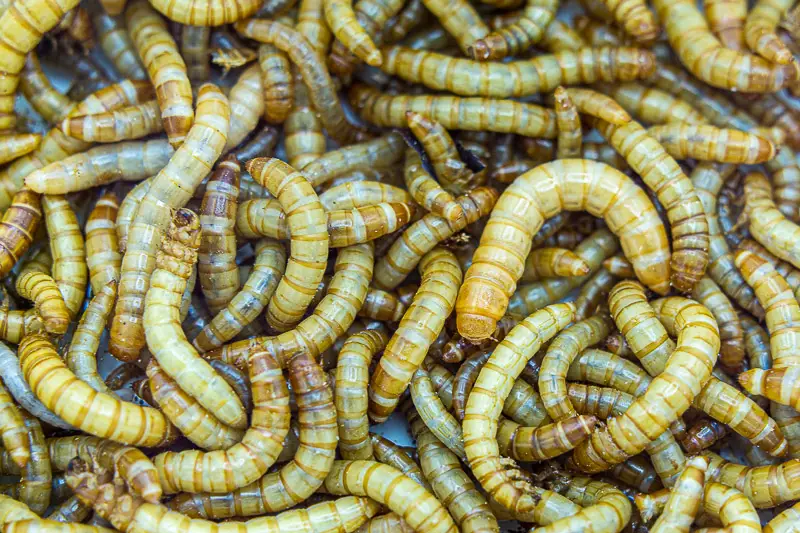
Now that we’ve covered the importance of substrate choice for leopard geckos, let’s move on to their feeding habits. This includes understanding their feeding frequency, nutritional requirements, and the different types of food they can eat.
Leopard geckos are mostly insectivores, and they require a varied diet that should primarily consist of live insects.
When feeding live insects, make sure you’re not offering prey that’s too big. A good rule is to never offer an insect larger than the space between your gecko’s eyes. It may be biting off more than it can chew (or swallow) otherwise.
It’s also important to ensure that feeder insects are properly gut loaded. A variety of insects will give your gecko a balance of protein and fiber. Also, using supplements can ensure that the gecko is getting the necessary vitamins and minerals that may be lacking in its diet.
Hydration
Staying hydrated is essential for any pet to maintain its health and happiness, and leopard geckos are no exception. Your leopard gecko enclosure should include a shallow water dish, to ensure that our geckos have access to clean and fresh water at all times.
You can read more in our article about water for leopard geckos.
Inadequate Heat and Lighting
Improper tank environment, especially heat can be a major factor for impaction. Leopard geckos depend on heat to digest their food. In particular, this would be a heat source under their tank that provides warmth against their abdomen.
Under tank heaters or heat mats are the easiest way to provide heat where leopard geckos need it.
Read more about leopard gecko heating needs.
Stress Levels
If you’re not careful, your leopard gecko may become stressed, which can lead to various health issues. Stress can be caused by a variety of factors, including inadequate heat and lighting, improper handling techniques, and lack of environmental enrichment.
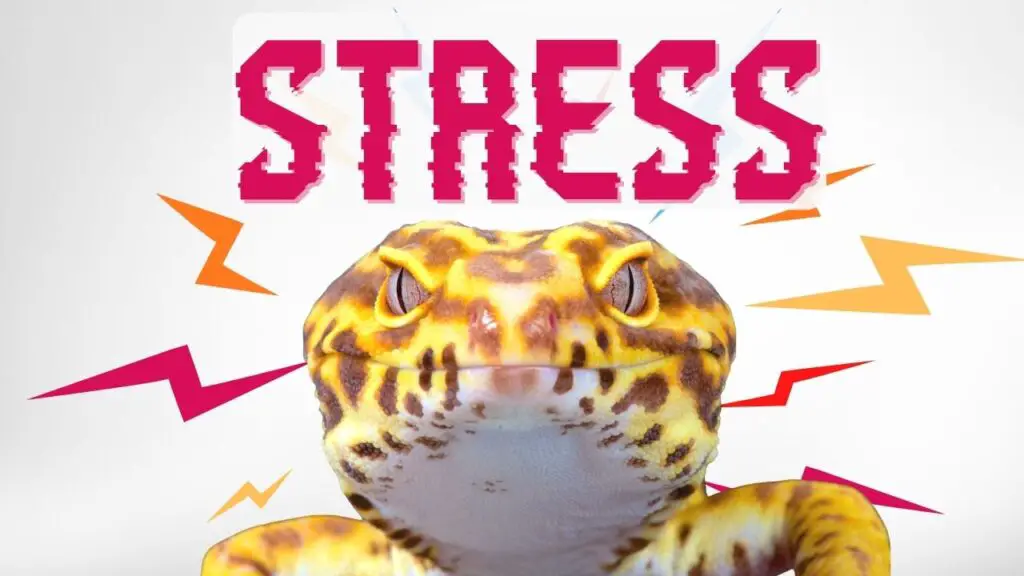
It’s important to pay attention to your gecko’s behavioral cues and take steps to reduce their stress levels. Making sure you have the essentials for a good environment can help reduce stress. Handling your gecko properly and providing bonding opportunities can help ensure that your leopard gecko stays healthy and happy.
Treating Impaction in Leopard Geckos
It’s always recommended to seek treatment from an experienced reptile vet if you suspect your gecko is impacted. A vet will be able to provide the best course of action for your gecko, which may include medication or surgery.
In addition to vet treatment, there are also some home remedies you can try to help your gecko pass the impaction. These may include gentle belly massages to help break up the impaction and warm baths.
Preventing Impaction in Leopard Geckos
By addressing the risk factors mentioned above, you can greatly reduce the chance of impaction in your leopard gecko. Solid substrates, appropriately sized insects, and proper temperature (with belly heat) and tank environment can help prevent impaction.
Wrap Up – Leopard Gecko Impaction
Impaction in leopard geckos can be a serious condition and cause a lot of pain and stress (and potentially lead to death.) The good news is that in most cases it’s entirely preventable.
By ensuring your gecko has a proper diet and environment, you can reduce the risk of impaction significantly. It’s important to remember that owning a pet is a responsibility.
We have a duty to keep them healthy and comfortable, and that’s especially true when it comes to exotic pets like leopard geckos. So, if you’re considering getting a gecko, make sure you’re ready to take on that responsibility.
Keep an eye out for any signs of impaction and take action immediately if you suspect something’s wrong. Remember, prevention is key, but don’t hesitate to get veterinary care when your pet needs it.
Read about more common leopard gecko ailments to spot signs of trouble early.

